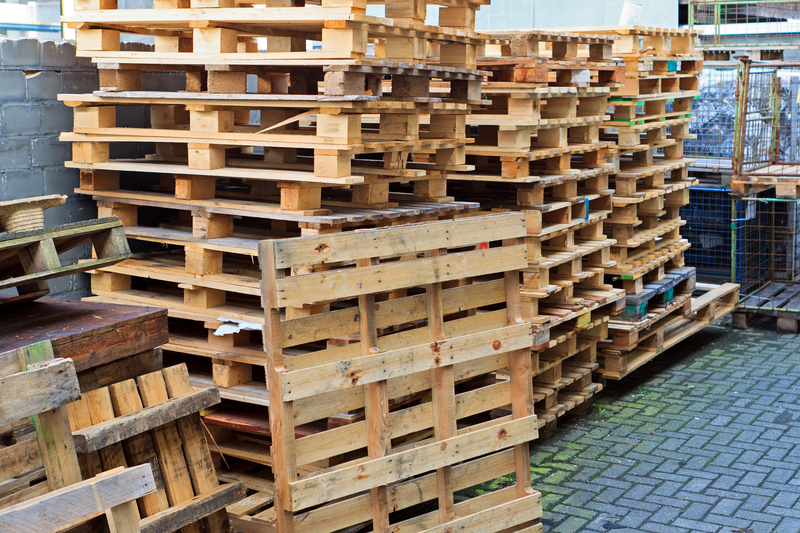The Ultimate Guide to Saving Money on Bulky Waste Disposal
When it comes to bulky waste disposal, the process can be overwhelming, expensive, and confusing. Whether you're moving, renovating, or simply decluttering your home, dealing with large and heavy items like furniture, mattresses, white goods, and appliances can quickly eat into your budget. But don't worry--this comprehensive guide is designed to help you cut costs and save money through smart, eco-friendly, and efficient bulky waste removal techniques.
What Is Bulky Waste?
Bulky waste refers to items that are too large to be disposed of through regular household trash collection services. Examples include:
- Old sofas, chairs, and couches
- Bed frames and mattresses
- Wardrobes and large cabinets
- Fridges, ovens, and washing machines
- Carpets and rugs
- Garden furniture and equipment
Disposing of these items requires specialized handling due to their size, weight, or potential hazardous content. Unfortunately, bulky item disposal services often come with premium fees, making it crucial to explore how you can decrease costs without compromising on efficiency or the environment.

Why Is Bulky Waste Removal So Expensive?
Bulky waste disposal can be pricey due to:
- Special equipment and vehicles required for collection
- Additional manpower for heavy lifting
- Disposal fees at landfill or recycling centers
- Environmental regulations on hazardous materials (like refrigerators)
However, with a strategic approach, you can save money on bulky waste disposal while staying eco-friendly.
Tips for Saving Money on Bulky Waste Disposal
1. Try Reuse Before Disposal
The golden rule for saving money on large waste removal is: Don't dispose--repurpose or reuse when possible. Here's how:
- Resell online: Use platforms like Facebook Marketplace, Craigslist, or Gumtree to sell unwanted but usable items. What's junk to you may be valuable to someone else!
- Donate to charity: Organizations often accept furniture and appliances in good condition. Many even offer free pick-up, saving you transportation costs.
- Offer for free: Local community groups or "freecycle" platforms can help items find a new home minus the landfill fees.
2. Take Advantage of Council Bulky Waste Collection Services
Many local councils provide free or low-cost bulky waste collection services for residents, typically a few times a year. Check your local government's waste disposal website for details and schedule your disposal accordingly to avoid private hauler fees.
- Book in advance: Slots can fill up fast, so plan ahead.
- Group items together: Most councils allow you to dispose of multiple items in one pick-up, maximizing your value.
3. Share the Cost With Neighbors
If your neighborhood doesn't have regular bulky item pickup, consider sharing a large skip bin with neighbors or coordinating a joint removal service. This way, you split the cost, making it considerably cheaper for everyone.
4. Compare Bulky Waste Disposal Providers
Shop around for bulky waste collection companies. Request quotes from at least three local providers. Make sure to ask about:
- Minimum charges
- Weight limits
- Item limits
- Eco-disposal practices
Competition saves you money--plus, you may find a service that offers bulk discounts or seasonal promotions.
5. Opt for DIY Drop-Off
If you own or have access to a vehicle, many waste disposal sites accept residential bulky items. You'll usually pay a per-item or per-load fee, which is often cheaper than hiring a private company, especially for a few large items.
- Check opening hours and restrictions: Some sites only allow household waste, not commercial.
- Ensure safe transport: Strap down large items securely to avoid accidents or fines.
6. Utilize Special Recycling Programs
For items like mattresses, white goods, electronics, and even carpets, look for local recycling initiatives or government-sponsored programs. These often come at reduced costs or are free to the public thanks to environmental grants.
7. Be Strategic With Timing
Plan your bulky waste removal during "amnesty periods" when certain providers or councils offer discounted or free collection days for items like furniture, appliances, or garden waste. Subscribe to local council newsletters to stay updated.
8. Prepare and Sort Your Bulky Waste Properly
Disassembly is often the secret to cheaper disposal. Many companies charge by volume or the ability to fit items in trucks. By breaking down furniture or removing doors from appliances, you can fit more in less space, translating to lower costs.
- Separate recyclables: Metal, wood, and fabric can often be disposed of for less when sorted.
- Follow guidance: Some programs require prep, like draining fluids from refrigerators or removing batteries from appliances.
Understanding Bulky Waste Disposal Options
1. Private Haulers
- Pros: Convenient, fast, and they do all the lifting.
- Cons: Most expensive option, especially for small loads.
Compare companies and ask about eco-friendly disposal: it's good for your wallet and the planet!
2. Skip Bins
- Pros: Suitable for ongoing renovations or clear-outs; cost-effective for high volumes.
- Cons: May require permits; pay for entire bin, regardless of fill level.
Optimize savings by sharing with neighbors or filling up the bin as much as possible.
3. Municipal Council Pick-Up
- Pros: Often free or heavily subsidized; backed by local regulations.
- Cons: May have long wait times or restrictions on allowed items and volume.
Make a list of items eligible for pick-up to maximize your allotment.
4. Recycling Centers & Drop-Off Facilities
- Pros: Usually less expensive if you transport items yourself; promotes recycling.
- Cons: Inconvenient if you lack transport or physical ability.
Best for those who are able to do the heavy lifting and want to save as much as possible.
Bulky Waste Types and Special Savings Tips
MATTRESSES & BED FRAMES
- Check for nationwide recycling programs that accept mattresses at discounted rates.
- Some furniture stores offer take back schemes with new purchases.
APPLIANCES & WHITE GOODS
- Many energy providers or appliance retailers offer free removal when you buy a replacement.
- Scrap metal dealers may take items for free or a small payment if they contain valuable metals.
FURNITURE
- Charities often accept solid wood furniture for upcycling.
- DIY projects: repurpose old pieces into storage or garden planters.
ELECTRONICS
- Manufacturer take-back programs can save you disposal fees.
- Local e-waste recycling events are often free to households.
CARPETS, RUGS & SOFT FURNISHINGS
- Some carpet retailers accept old carpets when you buy new ones.
- Animal shelters may accept rugs or blankets in clean, usable condition.
Common Bulky Waste Disposal Mistakes to Avoid
- Dumping illegally: Not only is this environmentally damaging, but it can result in hefty fines.
- Not checking regulations: Items like mattresses, white goods, and electronics have strict disposal guidelines. Failing to comply can mean extra fees.
- Ignoring recycling: Everything from scrap metal to wood has a recycling stream. Missing these opportunities means missing out on potential savings.
- Waiting too long: Fees often increase if you need rush or "man with a van" services.
Eco-Friendly and Money-Saving Bulky Waste Disposal Strategies
When looking to save on bulky waste clearance, adopting sustainable practices isn't just good for the planet--it's often easier on your wallet. Here's why:
- Recyclables are cheaper to dispose of: Many councils and recycling centers offer reduced rates or free disposal for sorted recyclable materials.
- Reusing saves you haulage costs: Donating, reselling, or offering items for free means you won't pay disposal fees.
- Proper separation is key: Sort metal, wood, and textiles for possible rebates or lower costs at recycling centers.

Quick Bulky Waste Saving Checklist
- Check for local free council bulky waste pickups
- Donate or sell items in good working order
- Coordinate disposal with friends or neighbors to share costs
- Prepare items for easy, low-cost removal (disassemble, sort by type)
- Use recycling programs and look for volume discounts
- Avoid last-minute bookings; plan disposal dates ahead
Conclusion: Efficient and Affordable Bulky Waste Disposal
Bulky waste disposal doesn't need to drain your wallet. By rethinking disposal habits, leveraging free or discounted services, and prioritizing reuse and recycling, you can save money on bulky junk removal and do your bit for the environment. The key is to plan, prepare, and participate in available community resources--all while keeping a sharp eye out for opportunities to reduce, reuse, and recycle.
Make these smart strategies part of your next clear-out, and enjoy a cleaner home with a fatter wallet!
